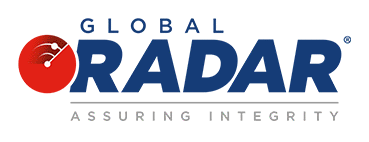On June 30th, 2021, the United States Department of the Treasury’s
Office of Financial Crimes Enforcement Network (FinCEN) issued its first
ever set of national policy priorities for anti-money laundering and
countering the financing of terrorism. These novel guidelines will reportedly
act in accordance with the Anti-Money Laundering Act of 2020 (AML Act),
meaning that once FinCEN creates regulations to implement these new
priorities, financial institutions will be bound by the AML Act to incorporate
them into their respective AML program(s). After lengthy consultation with
U.S. regulators, national security bodies, and the attorney general’s office,
these new regulations are expected to be developed over the course of the
latter half of 2021.
Among the more notable agencies consulted by FinCEN were the
Office of Terrorist Financing and Financial Crimes (TFFC) and the Office of
Intelligence and Analysis (OIA) – respective offices of the greater U.S. Office
of Terrorism and Financial Intelligence (TFI) tasked with marshaling the
Treasury Department’s enforcement, regulatory, and intelligence functions
to close the various channels of financial support available to international
terrorists, narcotics traffickers, and financial criminals. The national
AML/CFT Priorities FinCEN identified include a total of eight distinct
categories listed as follows (in no noted order of importance): (1)
Corruption; (2) Cybercrime, including cybersecurity and virtual currencies;
(3) Foreign and domestic terrorist financing; (4) Fraud; (5) Transnational
criminal organization activity; (6) Drug trafficking organization activity; (7)
Human trafficking and human smuggling; and (8) Proliferation financing.1
The announcement promotes the realm of “corruption” to a national
security interest – this given the destabilizing effects of corrupt activity,
specifically in the political sphere, and its ties to illicit finance often of the
multi-million dollar variety. Somewhat ironically, it will be the Biden
administration that will now be using its authority to address the various
ways that the United States is threatened by foreign bribery,
misappropriation of public assets, and the like.
Cybercrime considerations have also been highlighted on the priority
list, with this activity referring to any use of computer or digital technology
to assist in committing crimes. While this is a very broad range of
criminality, FinCEN pointed to cases of ransomware, where hackers steal
information and then hold it for ransom as well as the use of virtual assets
to launder proceeds of varying illicit activities. The bureau also notes convertible virtual currencies (CVC’s) are becoming ‘the currency of
preference in a wide variety of online illicit activity,’ many of which have
targeted financial institutions.1 FinCEN also made particular mention of
Russia and other nations (such as North Korea) who have led major hacking
and other interference efforts against the United States in the recent past,
calling for U.S. financial institutions to update their policies and practices,
as well as complete appropriate reporting of suspicious activity, to ensure
vigilance against activity of this variety. While foreign terrorism exploits
present considerable risks with respect to national security and the
integrity of the U.S. financial system, FinCEN also addresses domestic
terror financing aming their priorities. The regulatory body made note that
racially and ethnically motivated extremists pose among the most “lethal” of
domestic threats in todays highly contentious social climate.2
Human trafficking and smuggling – a trade growing in global reach
and one gaining international attention – is also made a priority, which
many would say is long overdue. FinCEN points out that these practices
typically involve money laundering through multi-layered operations that
often span across multiple jurisdictions. Logistics, housing, and transporting
victims often involve legitimate purchases made with illegitimately earned
money. This is something financial institutions should pay careful attention
to. Finally, FinCEN refers to the concept of proliferation financing, which is
loosely defined as the use of broker-dealers and shell companies to
circumvent restrictions on the creation of nuclear weapons. Regardless of
whether the individuals and/or companies in question are working to
acquire the weapons themselves or helping to sponsor illegal nuclear
programs, FinCEN claims that correspondent banking is the principal
vulnerability and driver of proliferation in the United States.2
While financial institutions will not be expected to incorporate the
priorities into their risk-based AML programs until FinCEN’s final
implementing regulations are issued later this year, FI’s small and large
would be wise to introduce these novel priorities to their compliance
departments and personnel sooner rather than later to avoid falling behind
with respect to eventual adoption of appropriate measures in early-2022.
Citations
1. Alvarez-Mena, Sergio, et al. “FinCEN Issues First U.S. Priorities for Anti-Money
Laundering and Counter-Terrorism Financing.” JD Supra, 9 July 2021. 2. Fornaris, Carl A., and Kyle R. Freeny. “FinCEN Identifies New Anti-Money
Regulators Keep Busy as 2024 Draws to Close
While the end of the calendar year generally translates to slowed production across

